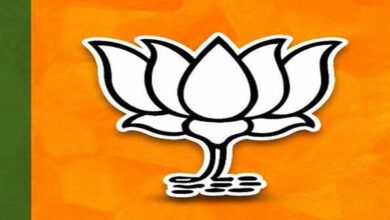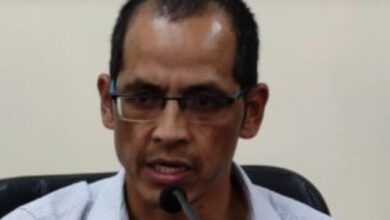
Shillong, April 12: Chief Minister Conrad Sangma said learning a new language whether it is Hindi, English or Japanese, is not a bad thing.
His reaction was in the wake of the move of the Centre to make Hindi compulsory in the schools up to Class X.
Sangma said the government has not received any letter from the central government in this regard.
“While the government of India works towards making Hindi mandatory, we have not received any documentation, I don’t really know what the structure of this entire process that they have in mind is,” he said.
Stating that he has seen the benefits of learning both Hindi and English languages, Sangma said language learning is something which gives you accessibility.
“Therefore, when it comes to the world market in terms of employment, English is very important so one has to be professional when it comes to English and when it comes to national level, we need to realise that Hindi is the largest spoken language throughout the country and so it will be an advantage for our youngsters to be able to learn Hindi. So I think there is nothing wrong in learning Hindi and making sure that our children learn Hindi and English both,” he said.
In response to Union Home Minister Amit Shah who said mother tongue should always be on top and given highest priority, the chief minister said, “What we would urge is that and what I would want to do and see that while government of India may put suggestion and recommendations is that we should give equal push from government of India side also that there should be learning, research or institute for our local languages also. Therefore, more push must be put for local languages as well.”
According to the chief minister, while research and documentation should be done and funds should be given by central government to put up institutes to promote the local languages, at the same time encourage our students to also learn English and Hindi at the same time I think it is something which is good and positive. One should not create a position here and a stand and say we don’t want to learn Hindi, that is not the way I feel one should look at.”
NESO against central move
The North East Students’ Organisation (NESO) has petitioned the Centre to revoke it’s decision to make Hindi as a compulsory subject till Class X in all the Northeastern states.
NESO chairman Samuel B Jyrwa wrote a letter to union home minister Amit Shah stating that NESO is of the view that indigenous languages should be made compulsory in their native states till the 10th standard and Hindi should remain as an optional or elective subject. “We urge upon your office and the Parliamentary Official Language Committee to revoke the previous decision and instead take due consideration of our proposals and suggestions”, the NESO chief said
As the Hindi language accounts for approximately 40-43 percent of native speakers in India, Jyrwa said that there is a plethora of other native languages in India which are rich, thriving and vibrant in their own perspectives giving India an image of a diverse and multi-lingual nation.
According to Jyrwa, each state in the North East bears its own unique and diversified language spoken by different ethnic groups ranging from Indo-Aryan, to Tibeto-Burman, to Austro-Asiatic families.
Jyrwa pointed out that the imposition of Hindi as a compulsory subject in the region will be detrimental not only for the propagation and dissemination of the indigenous languages but also to students who will be compelled to add another compulsory subject to their already vast syllabus.
“The NESO is vehemently against this policy and will continue to oppose as it had done in the past. As per the understanding of the organisation, such a move will not usher in unity but will be a tool to create apprehensions and disharmony. Also, a move to make one of the MIL subjects as compulsory is more or less like belittling the indigenous language spoken and written by a particular community,” Jyrwa said.
“NESO would like to urge upon your office to withdraw such an unfavourable policy but instead should focus on how to further uplift the indigenous languages of the North East region such as incorporation in the 8th Schedule of the Constitution and facilitating more schemes for their development and progress,” Jyrwa added





